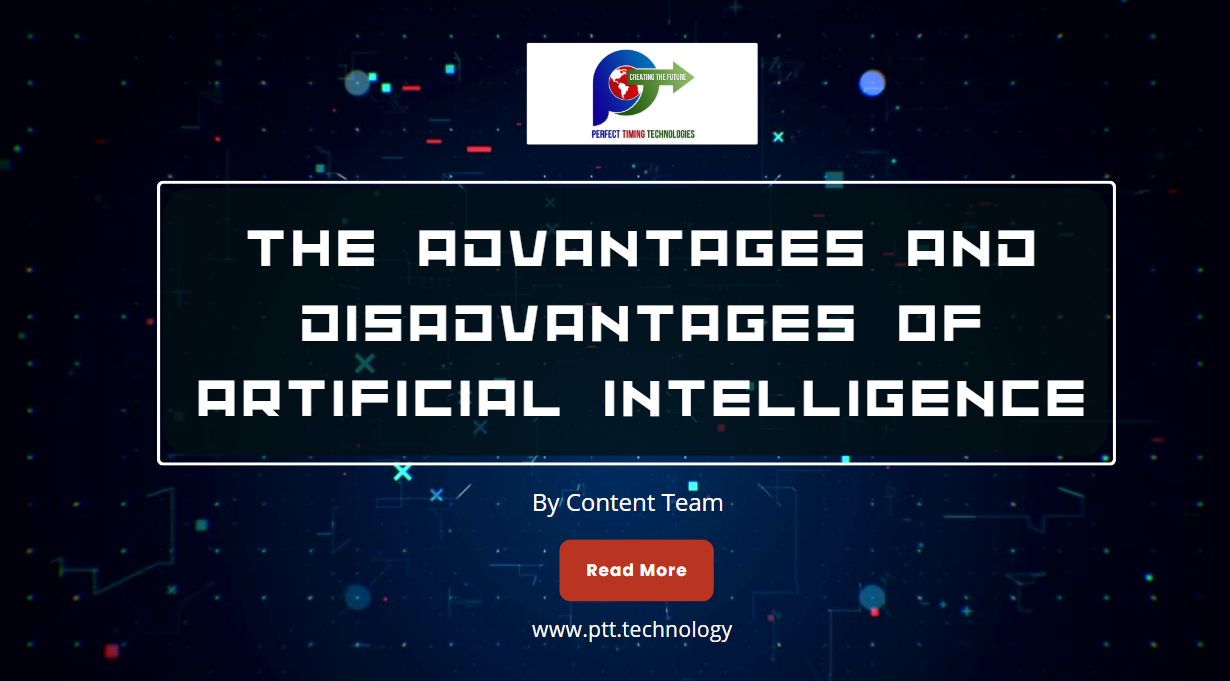
Artificial intelligence has taken over the business industry and became mainstream recently. After the 21st century, AI and ML technologies were thrust into mainstream businesses seeking digital transformation.
The best AI applications developed so far include building autonomous vehicles, facial recognition software, virtual assistants like Apple Siri and Amazon’s Alexa, and various applications across all industries including farming, gaming, healthcare, etc.
Artificial Intelligence is here to stay so businesses must implement the technology in their operations to become digitally transformed. But before investing time, money, and effort in leveraging AI, organizations should consider the advantages and disadvantages of implementing any new technological solution.
This article shall discuss the advantages and disadvantages of Artificial Intelligence technology and its implementation.
ADVANTAGES OF ARTIFICIAL INTELLIGENCE
Artificial Intelligence has transformed many industries improving the efficiency and effectiveness of businesses and organizations.
Given below are several advantages of AI that include:
- Improved Efficiency: AI systems can perform tasks much faster and more accurately than humans, leading to increased efficiency in industries such as healthcare, finance, and manufacturing.
- Cost savings: By automating routine tasks and eliminating the need for human labor, AI can help businesses save money on staffing costs.
- 24/7 Uptime: Unlike human workers who need rest, AI systems can operate continuously, providing 24/7 availability and responsiveness.
- Better Decision-making: AI systems can analyze large amounts of data quickly and accurately, helping businesses make better decisions based on data-driven insights.
- Personalized Products and Services: AI algorithms can personalize products and services based on individual customer preferences and behaviors, leading to better customer experiences.
- Predictive maintenance: AI systems can monitor equipment and machinery in real-time, identifying potential problems before they occur and enabling preventive maintenance, saving businesses time and money.
- Better Safety: AI systems can quickly detect and prevent safety problems, such as identifying potential hazards in industrial settings or detecting fraudulent activity in financial transactions.
DISADVANTAGES OF ARTIFICIAL INTELLIGENCE
While Artificial Intelligence has the potential to transform many industries and improve efficiency and effectiveness, it is significant to consider these potential disadvantages and work to mitigate their impact.
Given below are some potential disadvantages of AI, including:
- Reduces Manual Jobs: AI has the potential to automate many jobs currently performed by humans, leading to job displacement and unemployment in many industries.
- Lacks Human Intuition: AI systems may lack the human intuition and creativity that solve complex problems or make nuanced decisions.
- Biased Outcomes: AI systems can be biased based on the data they are trained and result in discrimination against certain groups or the perpetuation of existing inequalities.
- Security risks: AI systems can be vulnerable to cyber-attacks and hacking, which can compromise sensitive data and information.
- Excessive Dependence: Over-reliance on AI systems can make individuals and businesses dependent on technology, which can lead to significant disruptions in case of system failures or breakdowns.
- Ethical concerns: The use of AI raises ethical questions around issues such as privacy, data ownership, and transparency in decision-making.
Final thoughts
Artificial intelligence benefits businesses in numerous ways although excessive dependence on the technology can be equally harmful to organizations. Therefore, it is critical that organizations create a roadmap and then gradually integrate AI systems into their operations to avoid disruption in business functioning.







